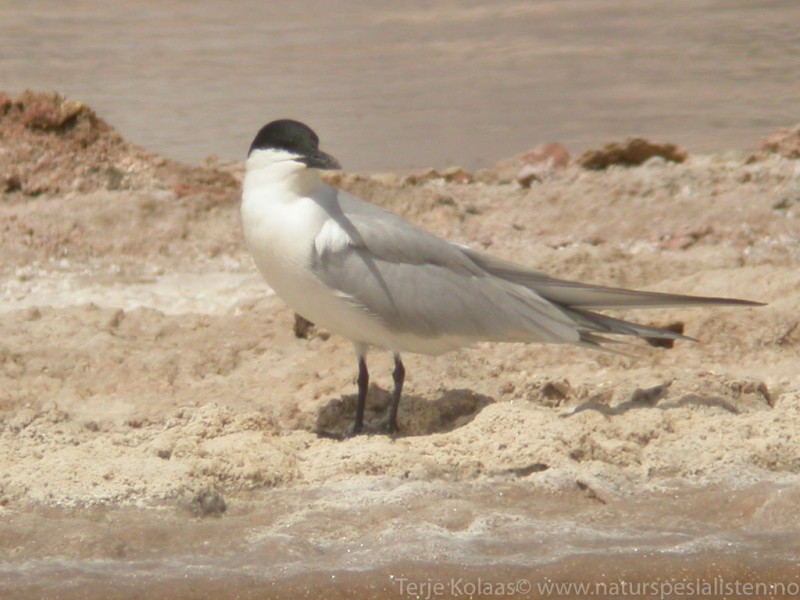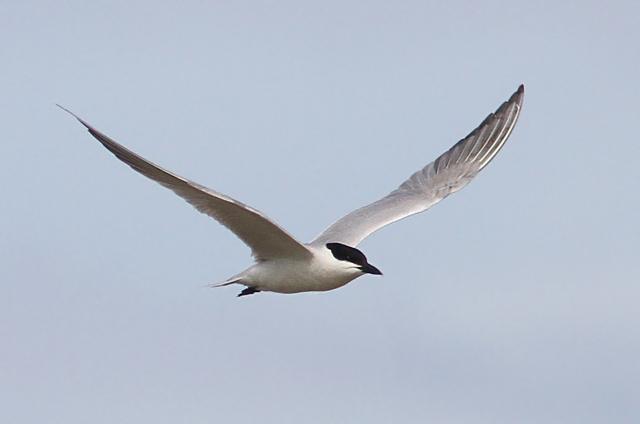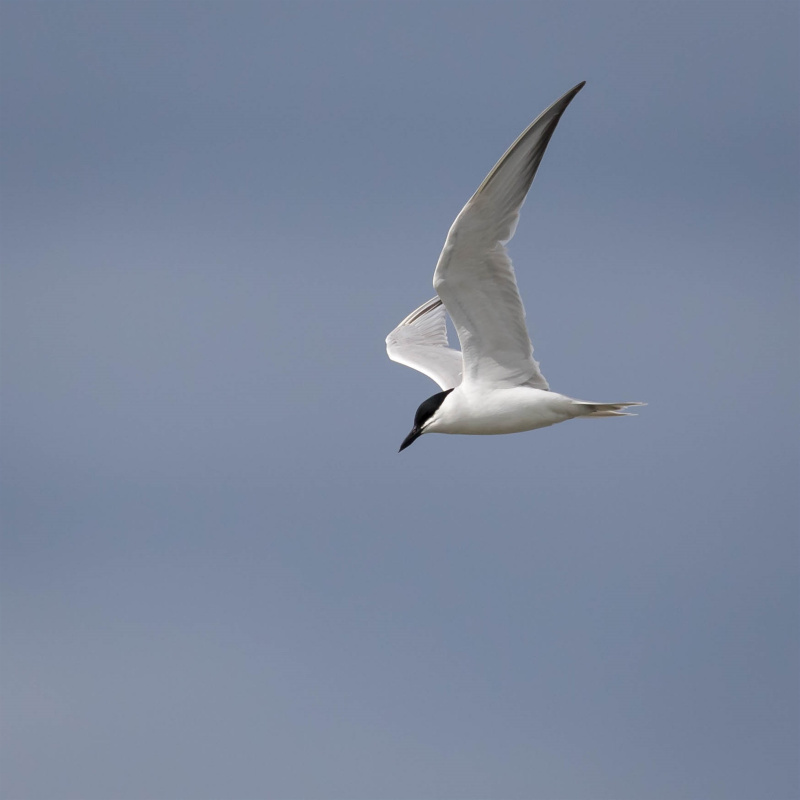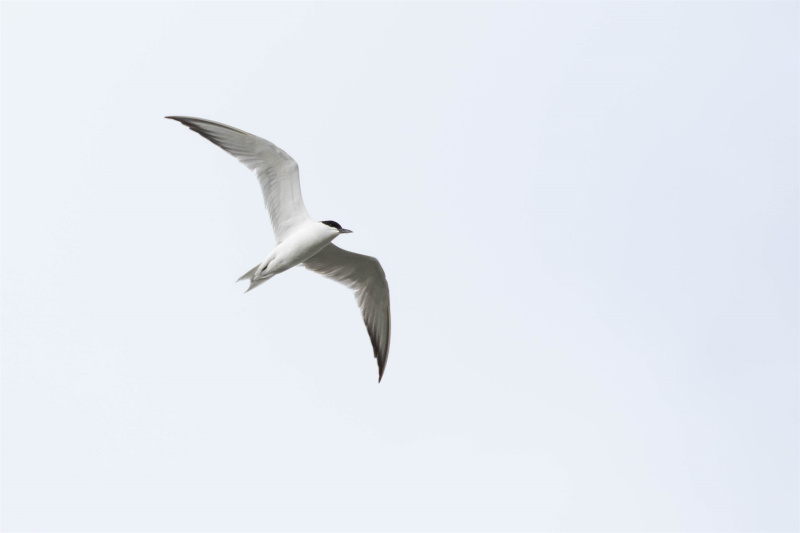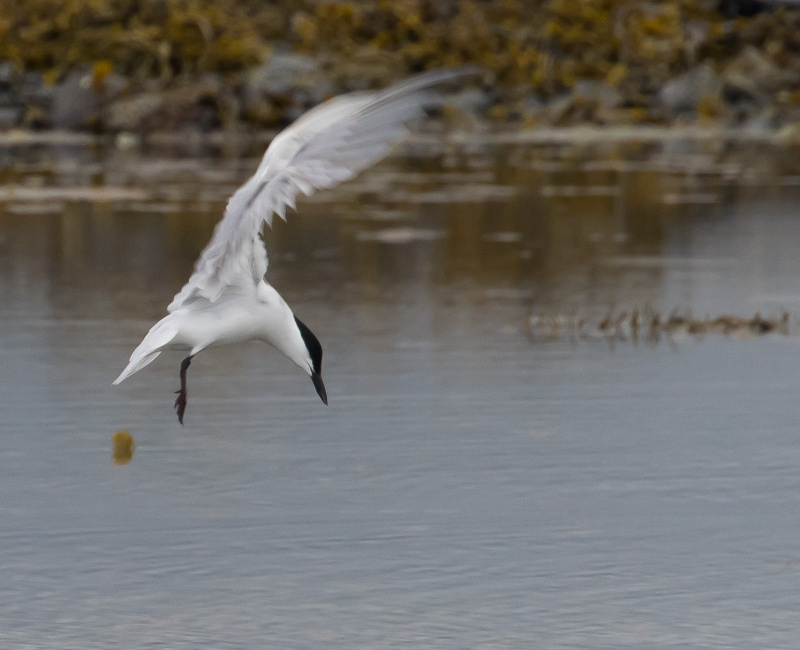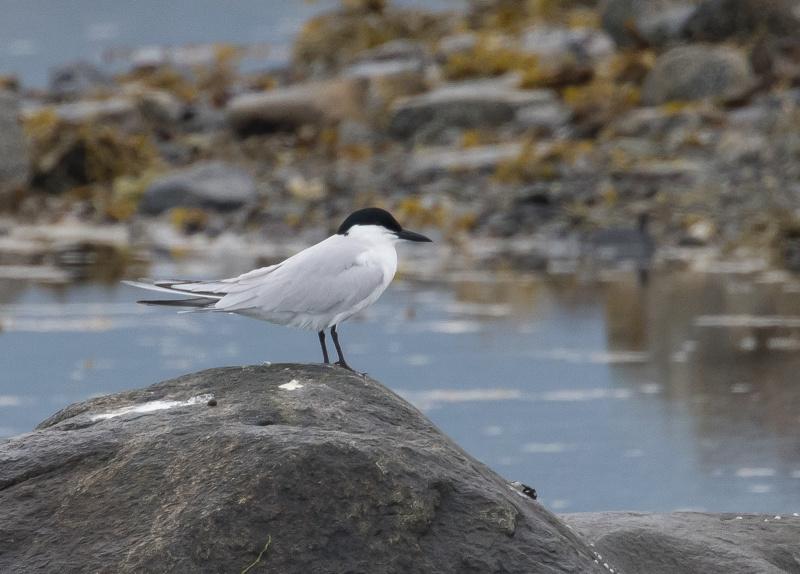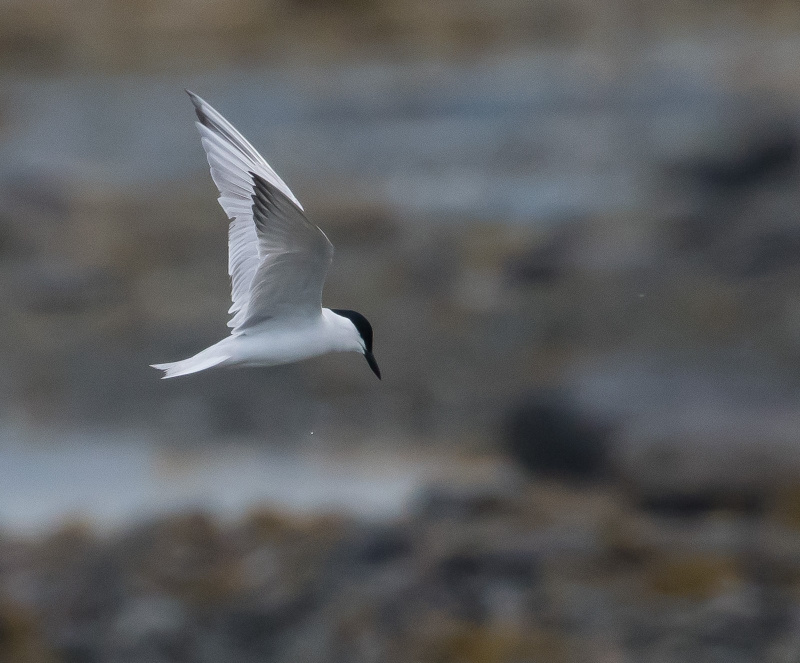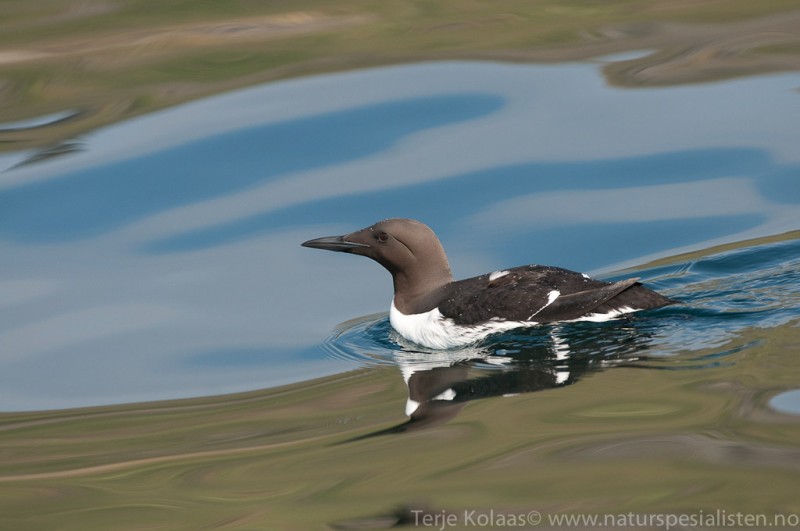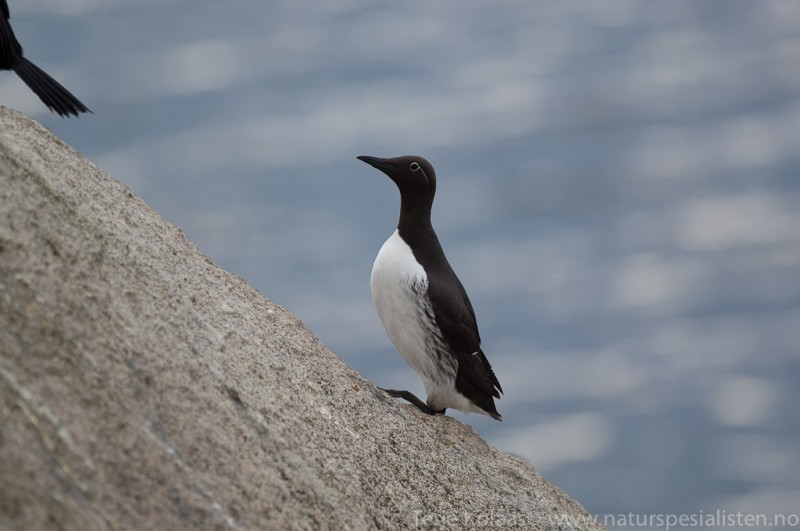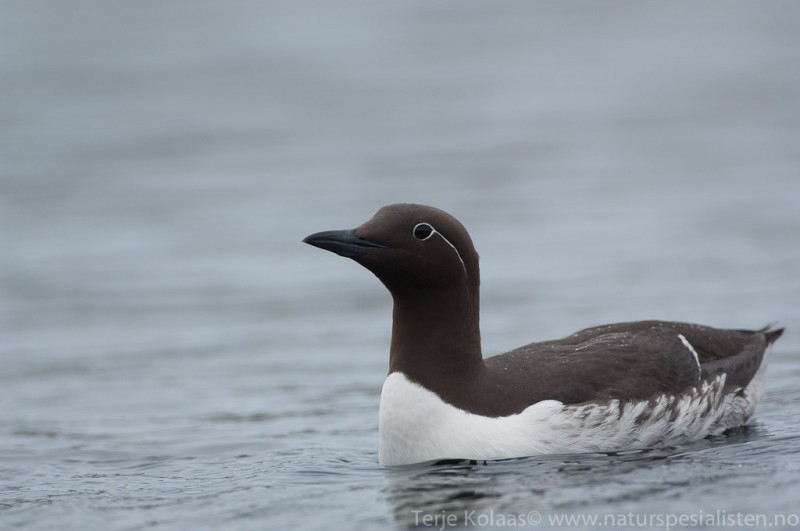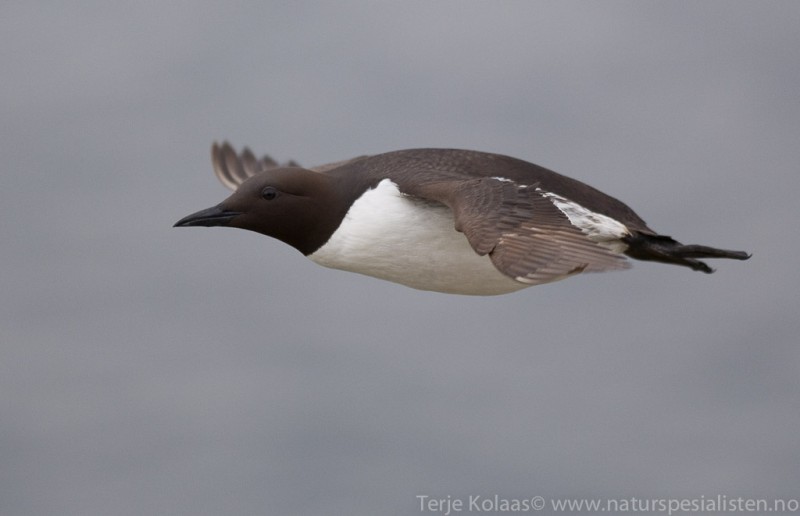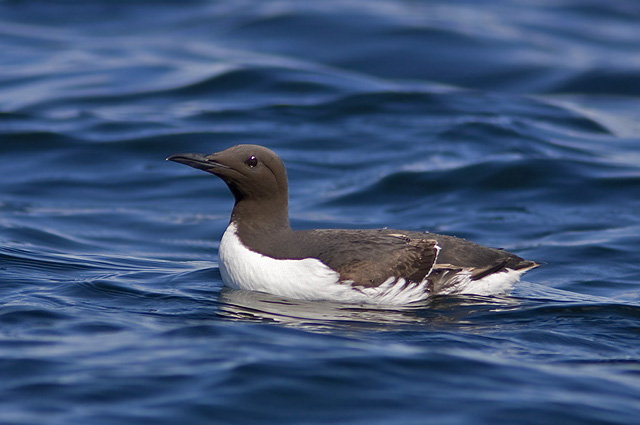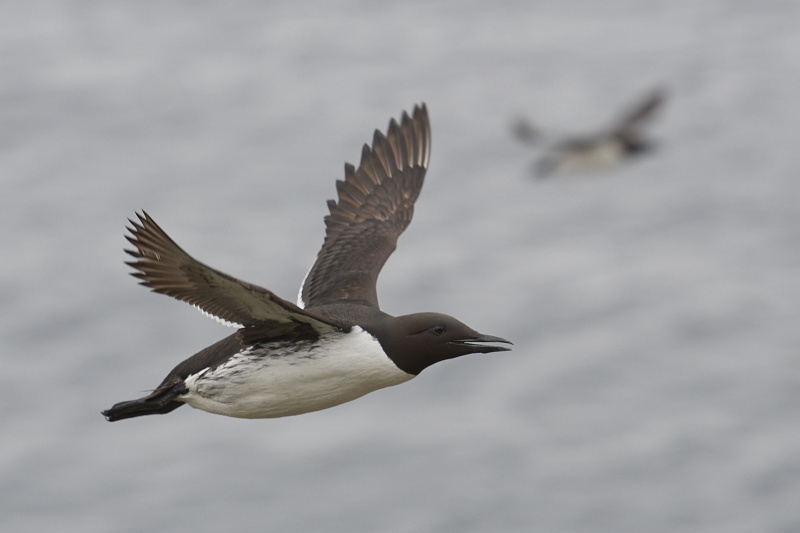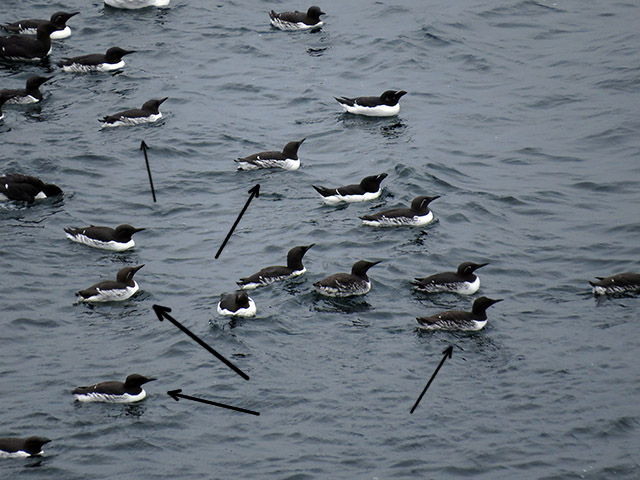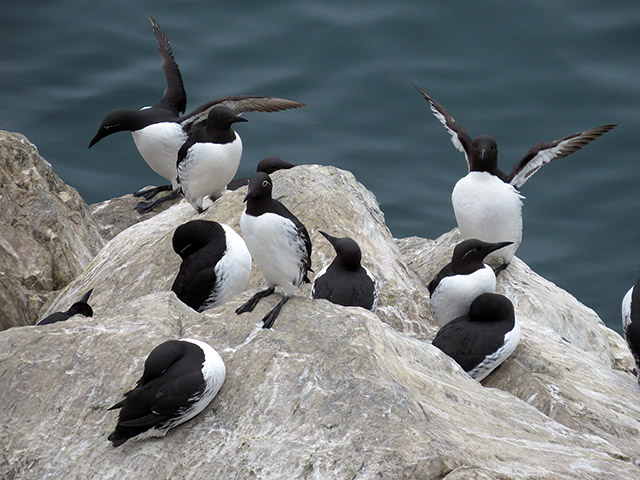Gull-billed Tern (Gelochelidon nilotica)
Guillemot (Uria aalge)
Easily confused with Sandwich Tern but choice of habitat usually different. Adults differs by noticeably shorter and deeper bill, lacking yellow tip. Wings are broader, tail is shorter and only slightly forked. Lacks crest. Primaries with dark trailing edge, especially underside. Rump pale grey, and there is no contrast between grey back and white tail as in Sandwich Tern. Loses the black cap in winter, but keeps a black mask (less black on head than Sandwich T). Immature birds also gives a paler impression. The back is almost uniform in colour, and the wings also have only diffuse markings. The dark trailing edge to the primaries is present though, together with dark eye mask. Rest of head is pale. Flight slightly front-heavy with shallow wing-beats. Catches insects in the air and from the ground in flight. Rarely plunge-dives. Prefers fresh water, and is often seen near wetlands, rivers and flooded fields, but also in salt water during migration.
Sound:Quite vocal and easily distinguished from most congeners. Mewing and sharp in tone, but not rattling or raucous like most terns. Most typical call is a disyllabic, mewing "ke-waat", with an upward inflection. Other variants are series of "ke-ke-ke-ke", or the mewing sounds.
Contact call:
Distribution:
Xeno-canto: map
Ecology:Birdlife ecology
Links:
Observation.org Latest observations
Image search Flickr NB! May give other species
CCAt a distance quite similar to Razorbill. Bill more slender, pointed and without white markings. Flanks streaked in black, and armpits with conspicuous black spot. Tail shorter than Razorbill. Cheeks white in winter, with thin black groove behind eye. Some individuals show white eye-ring and eye-groove in summer plumage. Differs from Brunnich's Guillemot in rounded, white wedge protruding from chest to throat, and all dark bill. Slender neck, head and bill, in combination with the short tail, gives it a different profile than Razorbill whether perched, swimming or flying.
Sound:Very coarse and deep voice. Typically rising in pitch, then ending on a prolonged stable note with a laughing quality. Sometimes only the coarse beginning uttered like "ga-ga-ga".
Contact call:
Distribution:
Wikipedia: map (se also Xeno-canto below)
Ecology:Birdlife ecology
Links:
Observation.org Latest observations
Image search Flickr NB! May give other species
CCCC-sounds:www.xeno-canto.org,david m,http://creativecommons.org/licenses/by-nc-nd/3.0/

 English
English Albanian
Albanian
 Armenian
Armenian
 Bulgarian
Bulgarian
 Catalan
Catalan
 Croatian
Croatian
 Czech
Czech
 Danish
Danish
 Dutch
Dutch
 Finnish
Finnish
 French
French
 Georgian
Georgian
 German
German
 Greek
Greek
 Hungarian
Hungarian
 Italian
Italian
 Latvian
Latvian
 Lithuanian
Lithuanian
 Macedonian
Macedonian
 Norwegian
Norwegian
 Polish
Polish
 Portuguese
Portuguese
 Romanian
Romanian
 Russian
Russian
 Sami : Lule sami
Sami : Lule sami
 Sami : North sami
Sami : North sami
 Sami : South sami
Sami : South sami
 Scientific names
Scientific names
 Serbian
Serbian
 Spanish
Spanish
 Swedish
Swedish
 Ukrainian
Ukrainian


